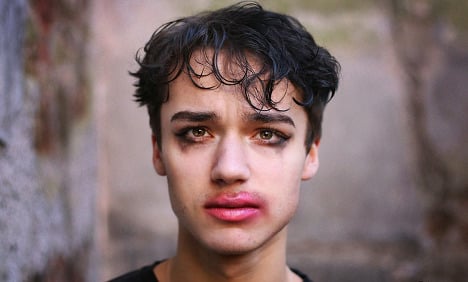Rose Morelli, a Bristol-based photographer of Italian origin, took the photo in honour of Leelah Alcorn, a teenager from Ohio, in the United States, whose death attracted international attention after she said in a suicide note, posted on Tumblr, that she took her own life because her parents could not accept who she was and forced her to undertake “conversion therapy”.
The photo, featuring Alcorn with tear-stained eyes and smudged lipstick, was intended to shake public conscience by telling the story of the pain she went through, while campaigning against conversion therapy and fighting homophobia.
The image helped to gather over 300,000 signatures to a petition calling for the therapy to be banned in the US.
But the photo was used by Fratelli d’Italia in a leaflet campaign against the teaching of what the party calls “gender theory”, such as gender stereotypes and discrimination, which it claims “undermines male and female gender by saying that men and women are equal in everything, regardless of their biological sex”.
In a campaign that got underway on Friday, the aim was for the message, which also called for the “defence of the family”, to reach parents across 70 schools in the province.
The party defended its use of the photo, saying it was made “freely available online”.
Morelli told The Local that she was preparing to take legal action, arguing that the party used her work without permission and in the opposite way to how it was intended.
“The use of the photo, while slightly ironic, is hugely distressing,” she added.
“It's unfortunate that the photo had to be used by an institution that I would never, ever plan on endorsing in any manner, and I can only hope that any damage to the LGBT community inflicted by use of my photo can be rectified in the upcoming lawsuit.”
In a statement on its website, the Trento unit of the gay rights organization, Arcigay, said:
“Maybe Fratelli d’Italia did not know [in what sense the image was used], or maybe it did. But who cares, the important thing is it railed against gender, told another lie, convinced the gullible and scared another mother.”



 Please whitelist us to continue reading.
Please whitelist us to continue reading.